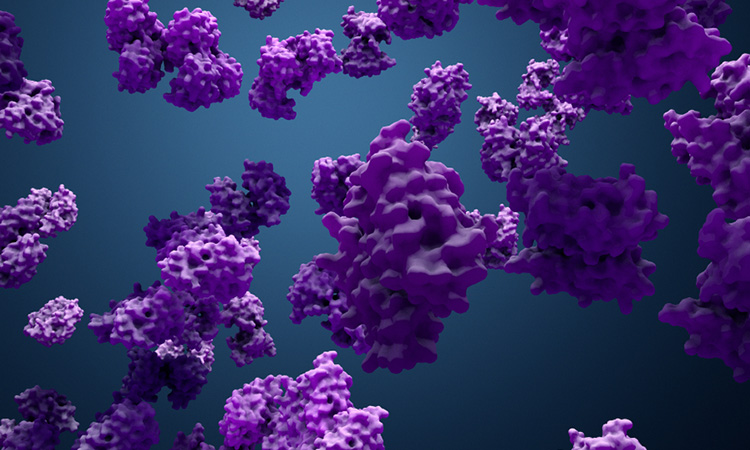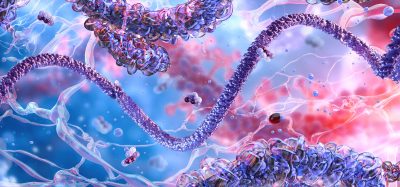Genetic analysis reveals disease-causing protein drug targets
Posted: 8 September 2020 | Victoria Rees (Drug Target Review) | No comments yet
An analysis of blood protein levels has supported drug target prioritisation by identifying the causal effects of proteins on diseases, a team has shown.


A study of blood protein levels has demonstrated how genetic data can be used to support drug target prioritisation by identifying the causal effects of proteins on diseases. According to the researchers, the aim of this study was to establish if genetic prediction of protein target effects could predict drug trial success.
The research was led by a team at MRC Integrative Epidemiology Unit (MRC-IEU) at the University of Bristol, UK.
Working in collaboration with pharmaceutical companies, the researchers used publicly available data published by many researchers around the world that was collated by the MRC-IEU OpenGWAS database. They then developed a comprehensive analysis pipeline using genetic prediction of protein levels to prioritise drug targets and quantified the potential of this approach for reducing the failure rate of drug development.
Using a set of genetic epidemiology approaches, including Mendelian randomisation and genetic colocalisation, the researchers built a causal network of 1,002 plasma proteins on 225 human diseases. In doing so, they identified 111 putatively causal effects of 65 proteins on 52 diseases, covering a wide range of disease areas.
“This analysis pipeline could be used to validate both efficacy and potential adverse effects of novel drug targets, as well as provide evidence to repurpose existing drugs to other indications. This study lays a solid methodological foundation for future genetic studies of omics. The next step is for the analytical protocol to be used in early drug target validation pipeline by the study’s pharmaceutical collaborators. We hope that these findings will support further drug development to increase the success rate of drug trials, reduce drug cost and benefit patients,” said lead author, Dr Jie Zheng.
Professor Tom Gaunt, a member of the UK National Institute for Health Research (NIHR) Bristol Biomedical Research Centre, added: “We have demonstrated that this re-use of existing data offers an efficient approach to reducing drug development costs with anticipated benefits for health and society.”
The study was published in Nature Genetics.
Related topics
Genetic Analysis, Genomics, Informatics, Protein, Proteogenomics, Proteomics, Research & Development
Related organisations
Bristol University, UK National Institute for Health Research (NIHR)
Related people
Dr Jie Zheng, Professor Tom Gaunt








